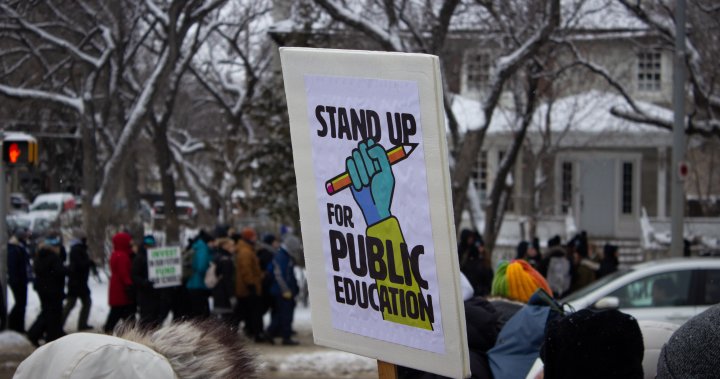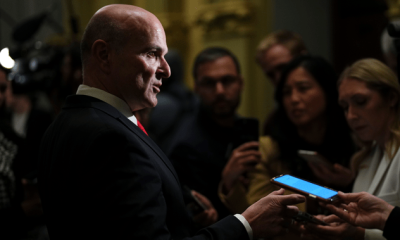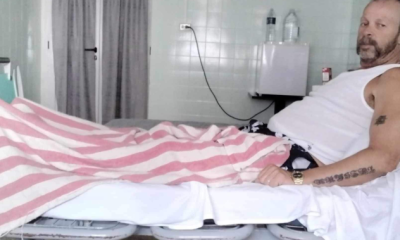General News
Saskatchewan Teachers’ Federation announces second round of rotating strikes

A second round of rotating teacher strikes has been announced by the Saskatchewan Teachers’ Federation (STF) for Wednesday, Feb. 7.
The move comes after two provincewide one-day strikes in January, and the first round of rotating strikes last week.
The following school divisions will be subject to strike action on Wednesday:
- Creighton School Division
- Northern Lights School Division
- Prairie Spirit School Division
- Greater Saskatoon Catholic Schools
- Saskatoon Public Schools
Strike action will also include Conseil des écoles fransaskoises schools and Saskatchewan Distance Learning Centre teachers who work at a school or regional campus within the area of the listed school divisions.
Get the latest National news.
Sent to your email, every day.
This includes ÉCF Pavillon Gustave Dubois, ÉCF Pavillon Monique Rousseau, École Providence, DLC Far North Campus in La Ronge and DLC Central Campus in Saskatoon.
“(The) government thinks they can wait us out, but they have failed to account for the most important factors,” STF president Samantha Becotte said Sunday. “Teachers are fed up and are united. There is strong and growing support for the action we’re taking because students, parents, businesses and communities know we all deserve better.”
The job action will involve approximately 4,300 teachers and will affect classes for roughly 65,300 students.
“People are witnessing the crisis unfolding in public schools, and they are not being fooled by the government’s spin,” Becotte continued. “We need the government to catch up with the people of this province. It is beyond time government returns to the table ready to actually negotiate so we can work together on real solutions.”
The STF is currently in contract negotiations with the provincial government and is attempting to add issues like classroom size and complexity to the agreement. The provincial government refuses to move on the issue, saying it would best be handled by local school boards.
“We can’t do that in a provincially bargained agreement because what that would essentially do is take the role of locally elected school boards, which we have 27 of across the province and give that to union leadership,” Education Minister Jeremy Cockrill said in a recent interview. “We’re not prepared to do that. We’re not prepared to take the local voice out of education.”
© 2024 Global News, a division of Corus Entertainment Inc.
Source
Disclaimer: No copyright infringement intended. All rights and credits reserved to respective owner(s).

























